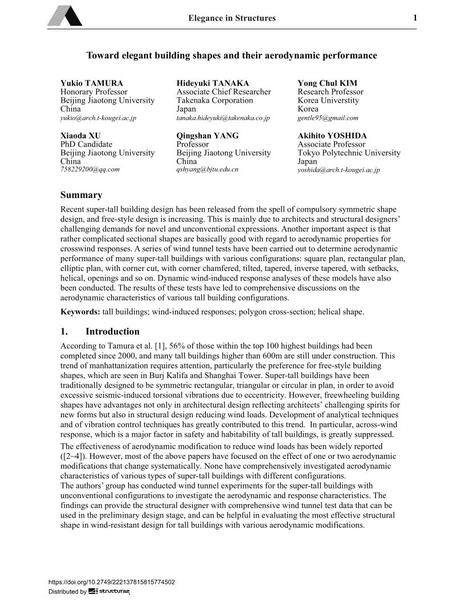Toward elegant building shapes and their aerodynamic performance

|
|
|||||||||||
Détails bibliographiques
| Auteur(s): |
Yukio Tamura
Hideyuki Tanaka Yong Chul Kim Xiaoda Xu Qingshan Yang Akihito Yoshida |
||||
|---|---|---|---|---|---|
| Médium: | papier de conférence | ||||
| Langue(s): | anglais | ||||
| Conférence: | IABSE Conference: Elegance in structures, Nara, Japan, 13-15 May 2015 | ||||
| Publié dans: | IABSE Conference Nara 2015 | ||||
|
|||||
| Page(s): | 170-171 | ||||
| Nombre total de pages (du PDF): | 8 | ||||
| Année: | 2015 | ||||
| DOI: | 10.2749/222137815815774502 | ||||
| Abstrait: |
Recent super-tall building design has been released from the spell of compulsory symmetric shape design, and free-style design is increasing. This is mainly due to architects and structural designers' challenging demands for novel and unconventional expressions. Another important aspect is that rather complicated sectional shapes are basically good with regard to aerodynamic properties for crosswind responses. A series of wind tunnel tests have been carried out to determine aerodynamic performance of many super-tall buildings with various configurations: square plan, rectangular plan, elliptic plan, with corner cut, with corner chamfered, tilted, tapered, inverse tapered, with setbacks, helical, openings and so on. Dynamic wind-induced response analyses of these models have also been conducted. The results of these tests have led to comprehensive discussions on the aerodynamic characteristics of various tall building configurations. |
||||
